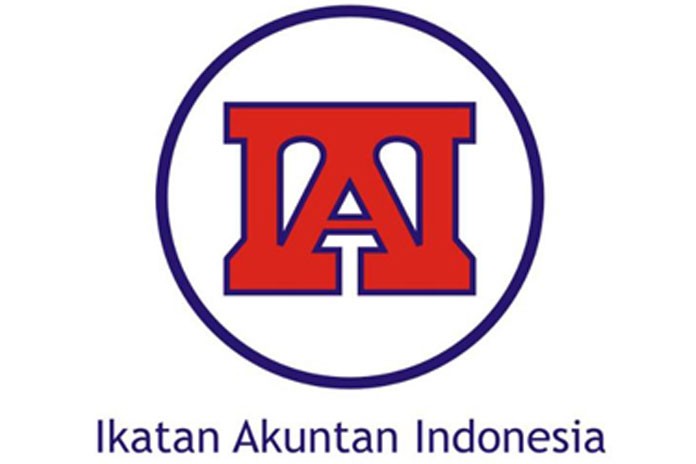Material Flow Cost Accounting to Enhance Sustainable Development: A Green Accounting Perspective
Abstract
This study examined the impact of material flow cost accounting, corporate social responsibility, and green accounting on sustainable development. The contribution of this research includes (1) adding literature and insight into the impact of the application of material flow cost accounting, corporate social responsibility, and green accounting perspective on sustainability development, (2) contributing ideas for the government to establish policies or regulations to formulate sustainable development plans in the company in the form of mandates by applicable laws and regulations and related laws, (3) Provide input for companies in determining policies related to the implementation of green accounting, material flow cost accounting in supporting sustainable development. The research method uses descriptive and verification methods. The population in this study is coal companies listed on the Indonesia Stock Exchange for the 2016-2020 period, with a total of 26 companies. The final sample obtained as many as 100 observations from 2016-2020. The results found that material flow cost accounting, corporate social responsibility, and green accounting significantly positively affect sustainable development. The implications of this research can create far-reaching positive impacts, helping companies make decisions to prepare for sustainable development.
Keywords
Full Text:
PDFReferences
Abdelhalim, K., & Edin, A. G. (2019). Can CSR help achieve sustainable development ? Applying a new assessment model to CSR cases from Egypt. 39(9), 773–795. https://doi.org/10.1108/IJSSP-06-2019-0120
Abdullah, M. W., & Amiruddin, H. (2020). Efek Green Accounting Terhadap Material Flow Cost Accounting Dalam Meningkatkan Keberlangsungan Perusahaan. EKUITAS (Jurnal Ekonomi dan Keuangan), 4(2), 166–186. https://doi.org/10.24034/j25485024.y2020.v4.i2.4145
Al-tuwaijri, S. A., Christensen, T. E., & Ii, K. E. H. (2004). The relations among environmental disclosure , environmental performance , and economic performance : a simultaneous equations approach. 29, 447–471. https://doi.org/10.1016/S0361-3682(03)00032-1
Ardina, A. K., Damayanti, N., Anggraini, S. M., Rachman, M. R., & Lastiati, A. (2020). Implementasi Material Flow Cost Accounting pada Industri UMKM ( Studi Kasus Konveksi Rumahan 4 Putri ).
Azapagic, A. (2003). Systems Approach to Corporate Sustainability : A General Management Framework. Process Safety and Environmental Protection, 81(5), 303–316. https://doi.org/10.1205/095758203770224342
Azapagic, A, & Perdan, S. (2000). Indicator Of Sustainable Development For Industry : A General Framework. 78(July).
Azapagic, Adisa. (2004). Developing a framework for sustainable development indicators for the mining and minerals industry. Journal of Cleaner Production, 12(6), 639–662. https://doi.org/10.1016/S0959-6526(03)00075-1
Chang, S.-H., Chiu, A., Chu, C. L., Wang, T.-S., & Hsieh, T.-I. (2015). Material Flow Cost Accounting System for Decision Making: The Case of Taiwan SME in the Metal Processing Industry. Asian Journal of Finance & Accounting, 7(1), 117. https://doi.org/10.5296/ajfa.v7i1.7033
Deegan, C. M. (2019). Legitimacy theory time is right for a necessary makeover. 32(8), 2307–2329. https://doi.org/10.1108/AAAJ-08-2018-3638
Disemadi, H. S., & Prananingtyas, P. (2020). Kebijakan Corporate Social Responsibility ( CSR ) sebagai Strategi Hukum dalam Pemberdayaan Masyarakat di Indonesia. 4(1), 1–16. https://doi.org/10.25072/jwy.v4i1.328
Fitriyanti, R. (2016). Pertambangan Batubara : Dampak Lingkungan, Sosial Dan Ekonomi. 1.
Fondevila, M. M., Abadia, J. M., & Scarpelini, S. (2018). CSR and green economy : Determinants and correlation of firms ’ sustainable development. July 2017, 1–16. https://doi.org/10.1002/csr.1492
Freudenreich, B., Freund, F. L., & Schaltegger, S. (2019). A Stakeholder Theory Perspective on Business Models : Value Creation for Sustainability. Journal of Business Ethics, 0(0), 0. https://doi.org/10.1007/s10551-019-04112-z
Gaedicke, C., Franke, D., Ladage, S., Lutz, R., Pein, M., Rebscher, D., Schauer, M., Schmidt, S., & von Goerne, G. (2019). BGR Energy Study. https://www.bgr.bund.de/EN/Themen/Energie/Downloads/energiestudie_2017_en.pdf?__blob=publicationFile&v=2
GRI G4. (2016). Global Report Initiative Standards. https:globalreporting.org
Hamidi. (2019). Analisis Penerapan Green Accounting Terhadap Kinerja Keuangan Perusahaan. 6(2), 23–36.
Hernawati. (2018). Efek Green Accounting Terhadap Material Flow Cost Accounting Dalam Meningkatkan Keberlangsungan Perusahaan (Studi pada Perusahaan Pertambangan di Bursa Efek Indonesia).
Homan, H. S. (2019). Environmental Accounting Roles In Improving The Environmental Performance And Financial Performance Of The Company. 11(1), 9–15.
Indayani, P. S. A. (2008). Analisis Konsep Sustainable Development dan Pengungkapan Sustainability Reporting pada Laporan Tahunan Perusahaan Go Public yang Listing di BEJ.
Jeremias, J. (2010). Pembangunan Berkelanjutan Berbasis Gerakan Ecosophy. Universitas Indonesia.
Jones, T. M., Harrison, J. S., & Felps, W. (2016). HOW APPLYING INSTRUMENTAL STAKEHOLDER THEORY CAN PROVIDE SUSTAINABLE COMPETITIVE ADVANTAGE.
Karyanto, B., & Martiana, R. (2020). Peran Akuntan dan Perusahaan Menuju Tujuan Pembangunan Berkelanjutan (Sustainable Development Goals / SDGs) 2030. 8(1), 15–30.
Klarin, T. (2018). The Concept of Sustainable Development : From its Beginning to the Contemporary Issues. 21(1), 67–94. https://doi.org/10.2478/zireb-2018-0005
Kurnia, A., Shaura, A., Raharjo, S. T., & Resnawaty, R. (2020). Sustainable Development Dan Csr. Prosiding Penelitian dan Pengabdian kepada Masyarakat, 6(3), 231. https://doi.org/10.24198/jppm.v6i3.26211
Kusumaningtias, R. (2013). GREEN ACCOUNTING , MENGAPA DAN BAGAIMANA ? 978–979.
Lavrinenko, O., Ignatjeva, S., Ohotina, A., Rybalkin, O., & Lazdans, D. (2019). The role of green economy in sustainable development (case study: the eu states) *. 6(3), 1113–1126.
Leanne, K., & Burritt, C. R. (2017). Material flow cost accounting for food waste in the restaurant industry.
Loen, M. (2018). Penerapan Green Accounting Dan Material Flow Cost Accounting (Mfca)Terhadap Sustainable Development. Jurnal Akuntansi dan Bisnis Krisnadwipayana, 5(1), 1–14. https://doi.org/10.35137/jabk.v5i1.182
Loen, M. (2019). Pengaruh Penerapan Green Accounting Dan Material Flow Cosy Accounting Tehradap Sustainable Development Dengan Resource Efficiency Sebagai Pemoderasi. 6(3), 14–25. http://dx.doi.org/10.35137/jabk.v6i3.327%0AISSN
Marota, R. (2017). Green Concepts and Material Flow Cost Accounting Application for Company Sustainability. Indonesian Journal of Business and Entrepreneurship, 3(1), 43–51. https://doi.org/10.17358/ijbe.3.1.43
Miles, S. (2017). Stakeholder Theory Classification , Definitions and Essential Contestability. 1, 21–47. https://doi.org/10.1108/S2514-175920170000002
Mufti, R. H. (2021). Analisis Efisiensi Produksi Mengunakan Framework Material Flow Cost Accounting (MFCA) Pada Industri Batik (Studi Kasus di Batik Sekartini). 6.
Nabila, R., & Arinta, Y. N. (2021). Green Accounting for Sustainable Development: Case Study of Indonesiaâ€TMS Manufacturing Sector. Akuntansi Dewantara, 5(1), 1–10. https://doi.org/10.26460/ad.v5i1.9147
Ningsih, W. F., & Rachmawati, R. (2017). Implemenrasi Green Accounting Dalam Meningkatkan Kinerja Perusahaan. 4(2), 149–158.
Putri, A. M., Hidayati, N., & Amin, M. (2019). Dampak Penerapan Green Accounting dan Kinerja Lingkungan Terhadap Profitabilitas Perusahaan Manufaktur Di Bursa Efek Indonesia. E-JRA Fakultas Ekonomi dan Bisnis Universitas Islam Malang, 08(04), 149–164.
Rachmawati, W., & Karim, A. (2021). Pengaruh Green Accounting Terhadap MFCA Usaha Serta Resource Efficiency Sebagai Variabel Moderating (Studi Kasus Pada Perusahaan Peraih Penghargaan Hijau Yang Listing Di Jakarta Islamic Index). Jurnal Ilmiah Manajemen Ubhara, 3(April 2021), 33–49.
Rahman, H., Maipita, I., & Kholis, A. (2020). Dukungan Dunia Usaha Terhadap Sustainability Development Dan Corporate Social Responsibility Dalam Masa Pandemi Covid 19 Di Sumatera Utara. 1–10.
Ramdhani, D., Yanti, & Sitompul, M. A. (2021). Peran Corporate Social Responsibility , Corporate Governance dan Profitabilitas : Indikasi Penghindaran Pajak Pada Sektor Pertambangan di Indonesia. 3(1), 65–74.
Rosaline, V. D., & Wuryani, E. (2020). Pengaruh Penerapan Green Accounting dan Environmental Performance Terhadap Economic Performance. Jurnal Riset Akuntansi dan Keuangan, 8(3), 569–578. https://doi.org/10.17509/jrak.v8i3.26158
Schmidt, M. (2014). The interpretation and extension of Material Flow Cost Accounting ( MFCA ) in the context of environmental material fl ow analysis. Journal of Cleaner Production, 1–10. https://doi.org/10.1016/j.jclepro.2014.11.038
Schmidt, M., & Nakajima, M. (2013). Material Flow Cost Accounting as an Approach to Improve Resource Efficiency in Manufacturing Companies. 1994, 358–369. https://doi.org/10.3390/resources2030358
Selpiyanti, & Fakhroni, Z. (2020). Pengaruh Implementasi Green Accounting dan Material Flow Cost Accounting Terhadap Sustainable Development. Jurnal ASET (Akuntansi Riset), 12(1), 109–116. https://doi.org/10.17509/jaset.v12i1.23281
Sunaryo. (2013). Corporate Social Responsibility (CSR) Dalam Perspektif Pembangunan Berkelanjutan. 7(1).
Wahyuningrum, Y., Noor, I., & Wachid, A. (2014). Pengaruh Program Corporate Social Responsibility Terhadap Peningkatan Pemberdayaan Masyarakat ( Studi pada Implementasi CSR PT . Amerta Indah Otsuka Desa Pacarkeling Kecamatan Kejayan Kabupaten Pasuruan ). 1(5), 109–115.
Ye, N., Kueh, T., Hou, L., Liu, Y., & Yu, H. (2020). A Bibliometric Analysis of Corporate Social Responsibility in Sustainable Development. Journal of Cleaner Production, 122679. https://doi.org/10.1016/j.jclepro.2020.122679
Yuliarini, S., & Inayati, T. (2022). Kompatibilitas Konsep Sustainable Development pada Laporan Corporate Social Responsibility. Journal of Accounting Science, 6(1), 28–37. https://doi.org/10.21070/jas.v6i1.1535
DOI: http://dx.doi.org/10.35448/jrat.v17i1.25011
Refbacks
- There are currently no refbacks.
pISSN 1979-682X eISSN 2528-7443
Jurnal Riset Akuntasi Terpadu (JRAT) is licensed under a Creative Commons Attribution 4.0 International License







